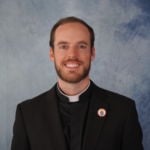
Over the last year, I have dug deep into studying a number of proofs for God’s existence. I started my search with St. Thomas Aquinas’ five proofs found in the Summa Theologica. It was a worthwhile journey that taught me a lot. I learned that in order to engage meaningfully with Aquinas’s proofs, we first have to engage with the great philosopher Aristotle.
The problem is that most people today have never engaged with either Aristotle or Aquinas. So my search continued, and it led me to what I consider to be my favorite proof for God’s existence: a proof from human suffering.
The secular culture believes that human suffering is the greatest argument against God’s existence. However, when investigated, human suffering becomes a strong argument in favor. This argument is marvelously presented by Pope Benedict XVI in his encyclical Spe Salvi. In order to take in the totality of Pope Benedict XVI’s argument, you will want to read Spe Salvi start to finish. But don’t worry—it’s a short encyclical. For a summary of his argument, you can refer to sections 43-44.
Our newest Doctor of the Church, St. John Henry Newman, was familiar with an argument like Benedict XVI’s, as evidenced by the fact that Newman mentioned the argument in passing in his book the Grammar of Assent (244). However, Newman’s favorite argument for God’s existence comes to us from his reflection on the human conscience.
This one is an argument from natural theology. That means that whether we are talking to a fellow Catholic, a Protestant, or even an atheist, we can engage this argument in a meaningful way. Our interlocutors don’t need to hold the same belief as Catholics do about the inerrancy of the Bible, because Newman’s argument doesn’t appeal to the Bible’s authority. He doesn’t appeal to the authority of Apostolic Tradition or later developments in Catholic Church teaching, either. Instead, his argument is rooted in his observations about the human conscience.
Newman first makes it clear that everyone, Christians and atheists, has first principles. First principles cannot be proven. They are assumed to be true, and they operate as the starting point from which we begin to reason. For his argument, the first principle from which Newman begins his proof for God’s existence is the idea “that we have by nature a conscience” (87). “This being taken for granted,” Newman continues, “I shall attempt to show that in this special feeling, which follows on the commission of what we call right or wrong, lie the materials for the real apprehension of a Divine Sovereign and Judge.”
Newman argues that the fact that some people have malformed consciences does not take away from the fact that there are millions of human beings who have a sense that there is right and wrong conduct.
Newman names two parts to our conscience. One part is the intellectual understanding that can develop a moral code. We can use our reason to make judgments about what is right and wrong. For example, I can reason that it is wrong for me to steal your car because you bought it and I didn’t.
The second part of our conscience operates differently. Rather than being a process of reason alone, our conscience commands us, as if someone from outside were judging our choices and actions. This judge (who for Newman is God) labels our actions either good or bad, and that comes with accompanying feelings that are either pleasant or painful. Newman explains, “Conscience is ever forcing on us by threats and by promises that we must follow the right and avoid the wrong” (89).
Our conscience is not our own worldview or ideas that we are subjectively superimposing on our decisions. Conscience extends beyond us to someone else as its source. Someone else is dictating to us what is right and wrong. It is for this reason that we have become accustomed to speaking about our conscience as “a voice, or the echo of a voice, imperative and constraining, like no other dictate in the whole of our experience.” The voice of our conscience isn’t something feeble and under our control. Instead, it tells us what we should do and what we should avoid.
Our actions lead to two sets of feelings. On the one hand, when we do bad, we feel “self-reproach, poignant shame, haunting remorse, chill dismay” (90). On the other hand, when we do good, we feel “self-approval, inward peace, lightness of heart, and the like.” Newman acknowledges that the negative feelings of a guilty conscience are stronger than the good feelings of a healthy conscience. But nothing can compare to what Newman states about a peaceful conscience: “It sheds upon us a deep peace, a sense of security, a resignation, and a hope, which there is no sensible, no earthly object to elicit.”
Newman then focuses his reflection on our feelings of guilt when we do wrong. If there is nobody to witness our corrupt actions, why are we afraid when we have a guilty conscience? Newman explains:
“The wicked flees, when no one pursueth”; then why does he flee? Whence his terror? Who is it that he sees in solitude, in darkness, in the hidden chambers of his heart?
If the cause of these emotions does not belong to this visible world, the object to which his perception is directed must be supernatural and divine, and thus the phenomena of conscience, as a dictate, avail to impress the imagination with the picture of a Supreme Governor, a Judge, holy, just, powerful, all-seeing, retributive, and is the creative principle of religion.
The reason we feel guilt when we do wrong is that we intuitively know that God is witnessing our choices and that he is judging them.
Newman saw additional support for his proof in his reflection on how easily some children understand conscience. Of course, a child who is not taught the Faith may have a difficult time recognizing and understanding their conscience, if he recognizes it at all. However, some children who are taught the basics of the Faith have the image of God as lawgiver and judge remarkably impressed into their minds. Newman remarks that conscience comes to that child
like an impulse of nature to entertain it. . . . Supposing he has offended his parents, he will all alone and without effort, as if it were the most natural of acts, place himself in the presence of God, and beg of him to set him right with them” (93-94).
Newman’s point isn’t that every child has a healthy conscience. His point is that there are some children who internalize what they learn about God so profoundly that it naturally develops into something far deeper than what they were taught. We should expect to see in Christian children a basic understanding of God. Newman points out, though, that there are some children in whom basic lessons about God strike a chord. Their knowledge quite naturally evolves into a profoundly personal relationship with the living God.
Now, from this point, that faith-filled child can take two paths. Newman places us in that child’s shoes. It is certain that whether our conscience
grows brighter and stronger, or, on the other hand, is dimmed, distorted, or obliterated, depends on each of us individually, and on his circumstances. It is more than probable that, in the event, from neglect, from the temptations of life, from bad companions, or from the urgency of secular occupations, the light of the soul will fade away and die out. Men transgress their sense of duty, and gradually lose those sentiments of shame and fear, the natural supplements of transgression (96).
Our choices have a real and tangible impact on the health of our conscience. If we choose to act against our conscience repeatedly, it will likely fade away and become silent. However, if we are obedient to our conscience, our image of God “may expand, deepen, and be completed . . . in the course of life.” According to Newman, education, social intercourse, experience, and literature can all contribute to a healthy conscience.
Here we’ve analyzed St. John Henry Newman’s proof for God’s existence from his reflection on the human conscience. It’s true that some people do not hear the voice of their conscience. This could be the result of poor education, a negative environment, or our own choices over time. I would even add that the ability to hear our conscience is a grace from God that he gives to some people and not others.
However, millions of people do hear their conscience. That inner voice is the voice of a sovereign judge. It is the voice of God speaking to us and guiding us through life. For Newman, this is the strongest argument for God’s existence.



